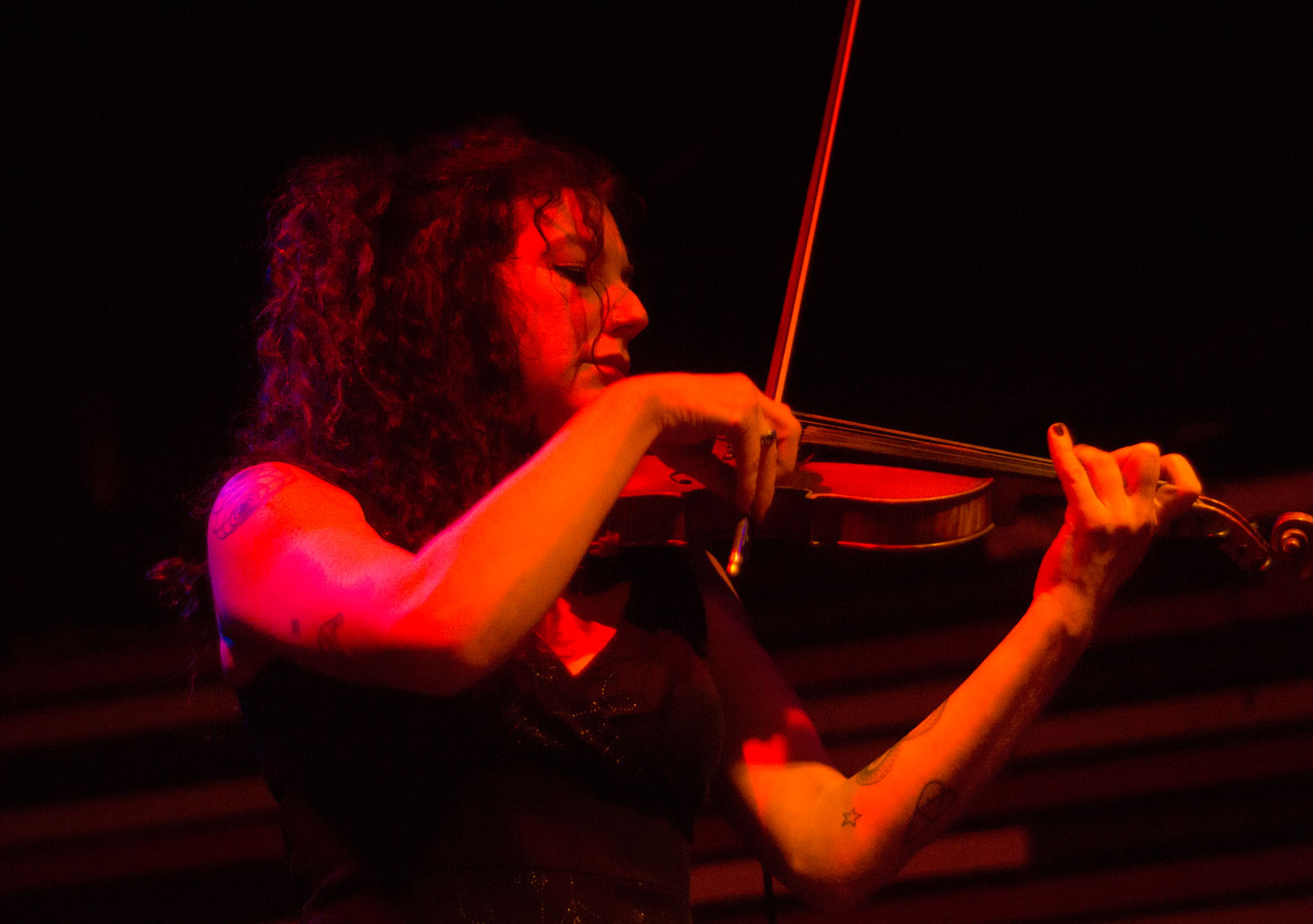The violinist launched her new album Entanglement, last Thursday at Bar Le Ritz
Since the early 2000s, Jessica Moss has been best known for her work as a member of Thee Silver Mt. Zion Memorial Orchestra.
She has also contributed her skills on the violin to some of Canada’s most recognized independent releases, including Arcade Fire’s 2004 debut Funeral, and Broken Social Scene’s 2002 album, You Forgot It in People.
However, it wasn’t until 2015 that Moss put out her first release under her own name, a self-released cassette-only album called Under Plastic Island. Her official debut release, Pools of Light, followed in 2017 from Montreal-based Constellation Records.
Her latest album was inspired by the quantum theory of entanglement, which describes the little understood phenomenon of two or more particles displaying correlative physical properties (such as amount of spin), even if those particles eventually find themselves on opposite sides of the universe.
Moss uses this as a jumping off point for exploring the ways in which humans become entangled with each other. “Because it’s beyond the realm of human understanding, then my feeling that somehow entanglement is happening around us, in ways that affect us, […] I don’t need to think that ‘well, science can’t prove that,’” Moss said.
Now as a solo artist, when Moss tours, it is typically completely on her own. Considering her work with Thee Silver Mt. Zion involved touring with upwards of five people, this has represented a bit of a shift for her.
“I spent a very, very many years in my own version of collective working environments, music-wise, […] it’s been very interesting to take my own experiences and learn very much from travelling alone,” Moss said.
Of course, it was Moss’s experience touring with bands over the last 20 years that gave her the confidence to take on the challenge of being on the road alone. And, besides, it gives her ample opportunities to observe humanity.
“I’m a little bit obsessed with watching people in their natural environments, you can only do that in certain circumstances, […] if I can watch people watching the opening band, I find it very interesting,” Moss said.
For the album launch at Bar Le Ritz last Thursday, Moss wanted to perform with some of the humans she has become entangled wi
Moss’s friend, writer Alexei Perry Cox, opened the show with a poetry reading while her newborn was strapped to her chest. Incidentally, Moss helped deliver the baby just a month prior.
After Cox, Sam Shalabi, a long time friend of Moss’s and Constellation Records artist gave a solo performance on his Oud, a lute-type instrument used in a lot of Middle Eastern and North African music.
Moss began her own set by playing traditional Jewish songs, accompanied by Thierry Amar, bass player in The Silver Mt. Zion Memorial Orchestra and Godspeed You! Black Emperor, before moving on to a performance of “Particles,” the twenty-one minute opening piece from Entanglement. The array of about a dozen pedals allowed Moss to make many different sounds with her live violin, using a loop pedal to layer strings upon pulsating and blipping alien soundscapes.
“Particles” eventually gives way to gloriously grandiose and ethereal strings, and then slowly decays into serene, whispering drones as Moss switches to using her voice to produce the sounds on stage.
On Feb. 19, Moss will begin a short tour promoting the album, opening for Julia Holter, and will play Montreal again on Feb. 24 at La Sala Rossa.
